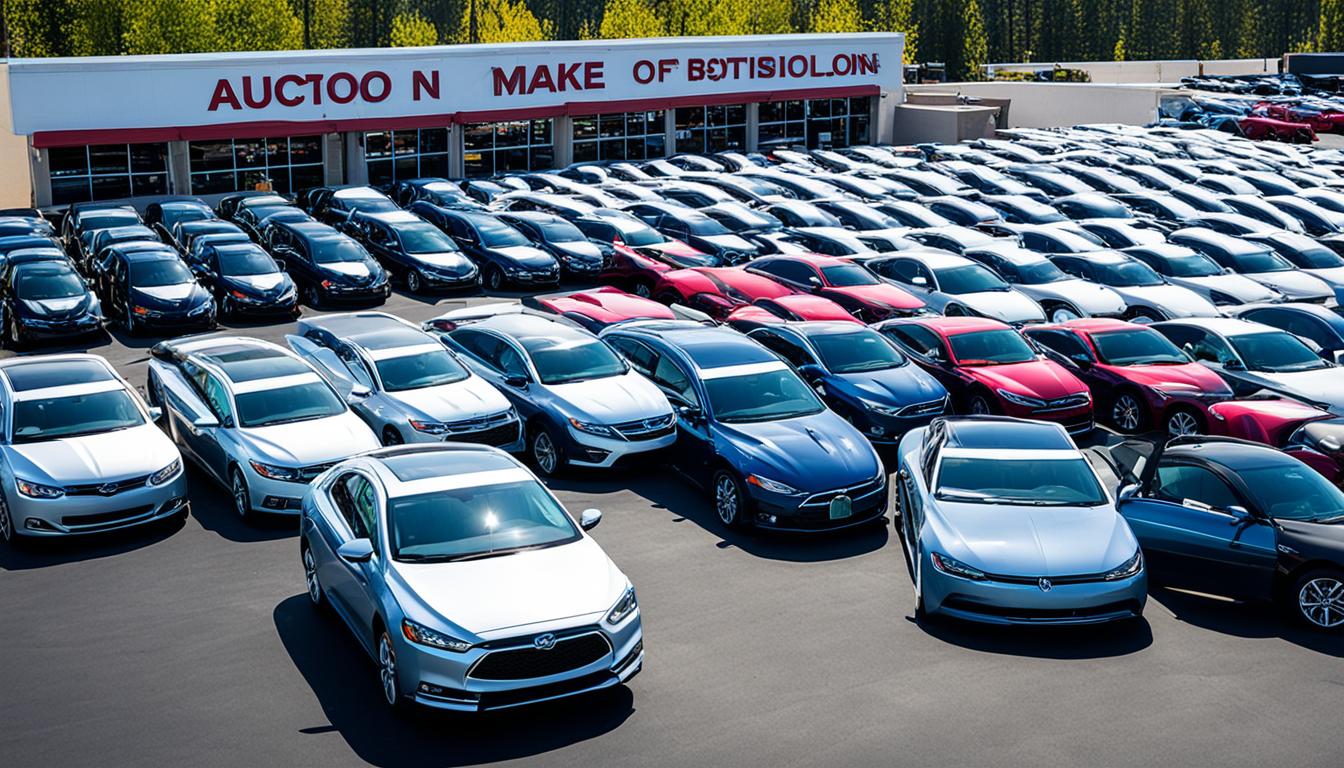In this comprehensive guide, we will walk you through the key steps and considerations for starting a successful car auction business. Whether you’re an entrepreneur looking to enter the automotive industry or an existing business owner seeking to diversify, this article will provide you with the necessary insights and strategies to launch your car auction venture. From understanding the market landscape to navigating the legal and financial requirements, we’ll cover all the essential elements to help you make informed decisions and achieve your business goals.
The used car market is thriving, and car auctions have become an increasingly popular channel for buyers and sellers alike. By starting a car auction business, you can tap into this growing industry and capitalize on the lucrative opportunities it presents. From public auctions to dealer-only events and online platforms, there are various models to explore, each with its own unique advantages and challenges. Join us as we delve into the intricacies of the car auction business and equip you with the knowledge to turn your entrepreneurial dreams into a successful reality.
Understanding the Car Auction Business Landscape
As we delve into the world of the car auction industry, it’s crucial to grasp the current trends and dynamics shaping this dynamic market. By understanding the used car market trends and the various types of car auctions available, you’ll be better equipped to navigate the complexities of this industry and position your business for success.
Trends and Statistics in the Used Car Market
The used car market has experienced a surge in demand in recent years, driven by factors such as the rising costs of new vehicles and the growing preference for more affordable, pre-owned options. According to industry data, the used car market in the United States has seen a steady increase in sales, with over 40 million units sold annually. This trend is expected to continue, as consumers seek value and flexibility in their automotive purchases.
Interestingly, the COVID-19 pandemic has also had a significant impact on the used car market. With the disruption in new car production and the hesitation of some consumers to use public transportation, the demand for used vehicles has skyrocketed, leading to a spike in prices and a decrease in inventory. This dynamic has created unique opportunities for car auction businesses to capitalize on the evolving market conditions.
Types of Car Auctions: Public, Dealer-Only, and Online
When it comes to the car auction industry, there are several distinct formats to consider, each with its own set of advantages and target audience. Let’s explore the three main types of car auctions:
- Public Car Auctions: These auctions are open to the general public, allowing individual consumers, as well as dealers, to participate and bid on a wide range of vehicles. Public auctions offer a diverse selection of cars, from high-end luxury models to more affordable options, making them a popular choice for both casual buyers and savvy investors.
- Dealer-Only Car Auctions: Designed exclusively for licensed car dealers, these auctions provide a platform for wholesale transactions, allowing dealers to acquire vehicles directly from other dealers, manufacturers, or fleet owners. Dealer-only auctions offer a more specialized and streamlined experience, catering to the specific needs and requirements of automotive professionals.
- Online Car Auctions: The rise of e-commerce has also transformed the car auction industry, with the introduction of online platforms that facilitate virtual auctions. These digital marketplaces enable buyers and sellers to connect remotely, expanding the reach and accessibility of the car auction experience. Online auctions offer convenience, a broader selection of vehicles, and the ability to participate from the comfort of one’s own home or office.
By understanding the nuances of these different auction formats, you can make informed decisions about the type of car auction business that best aligns with your goals, target market, and overall strategy. This knowledge will be crucial as you take the next steps in starting your own car auction venture.
| Auction Type | Target Audience | Key Advantages |
|---|---|---|
| Public Car Auctions | Individual consumers and dealers | Diverse vehicle selection, accessible to the general public |
| Dealer-Only Car Auctions | Licensed car dealers | Specialized for wholesale transactions, streamlined dealer-to-dealer experience |
| Online Car Auctions | Both consumers and dealers | Convenience, expanded reach, and accessibility from anywhere |

“The car auction industry is evolving rapidly, driven by shifting consumer preferences and the rise of digital platforms. Understanding these trends and the different auction formats is crucial for any aspiring car auction business owner.”
Start Car Auction Business: Legal and Financial Requirements
Launching a successful car auction business requires navigating a range of legal and financial considerations. First and foremost, we’ll need to ensure we have the necessary licenses and permits to operate. This may include obtaining a business license, auctioneer’s license, and any specific certifications or registrations required in our local jurisdiction. By addressing these legal requirements upfront, we can avoid potential roadblocks and ensure our business is operating within the bounds of the law.
Turning to the financial aspects, we’ll need to carefully assess the startup costs associated with establishing our car auction business. This may include the costs of setting up a physical auction house, investing in technology and software, hiring staff, and marketing our services. Understanding these upfront expenses will help us develop a realistic budget and identify potential financing options, such as business loans, investor funding, or even crowdsourcing platforms.
Once we have a handle on the financial requirements, we can explore the various revenue streams associated with operating a car auction business. This may include commissions from the sale of vehicles, auction participation fees, and potential ancillary services like vehicle appraisals or transportation logistics. By diversifying our revenue sources, we can create a more sustainable and resilient business model.



